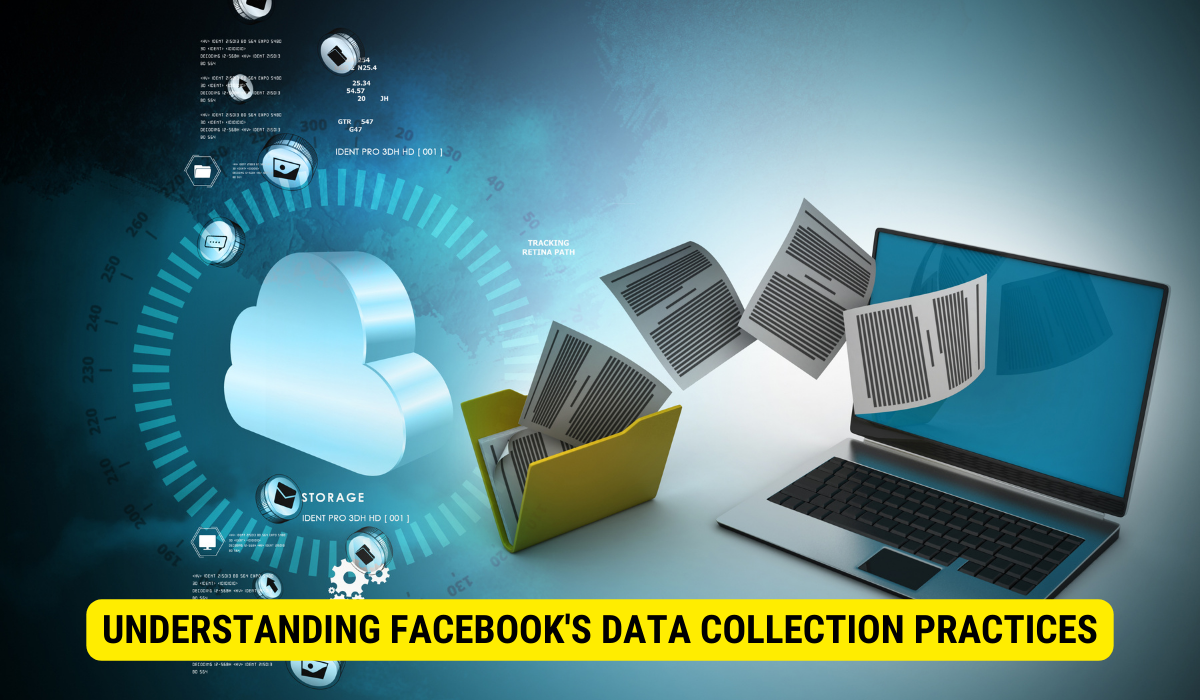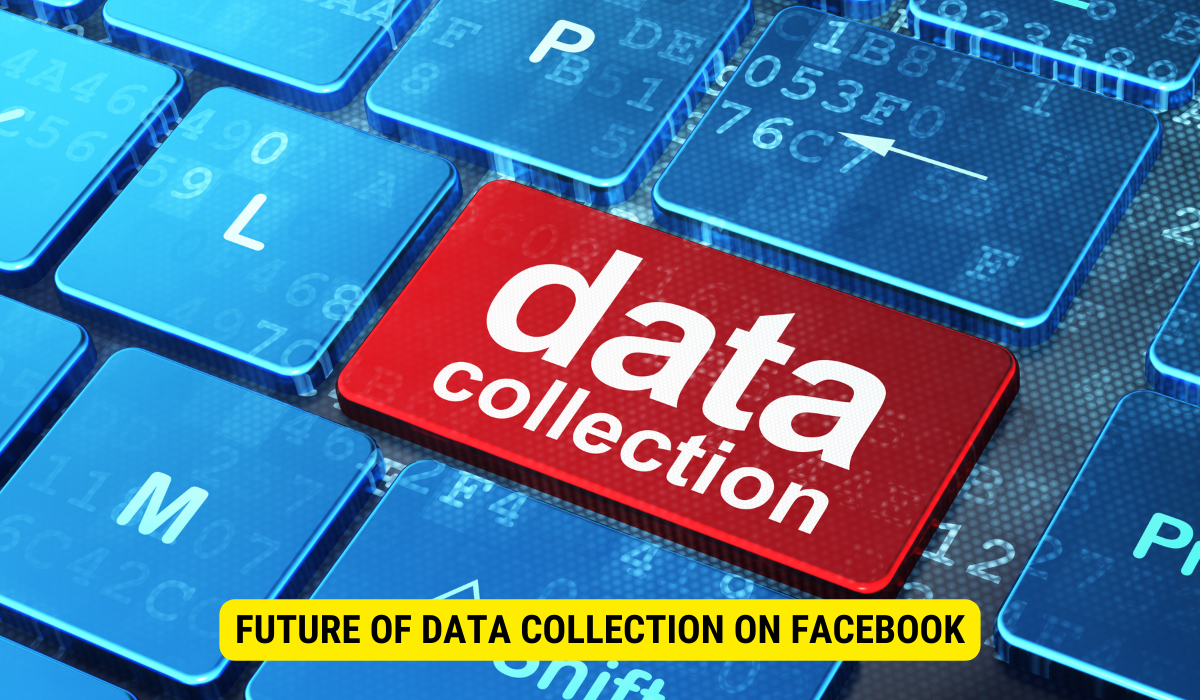Third parties that collect data on Facebook privacy issues primarily include advertising companies, data brokers, and app developers.
In recent years, privacy concerns surrounding Facebook’s data collection practices have raised questions about the involvement of third parties in collecting user information. Understanding the intricacies of this issue is crucial for users to make informed decisions about their privacy online. I will shed light on the various aspects of third-party data collection in Facebook privacy issues.
Understanding Facebook’s Data Collection Practices
Facebook, a social media platform with billions of users worldwide, relies on collecting vast amounts of data to provide personalized experiences, targeted advertisements, and relevant content. The company utilizes various methods and technologies to gather user information.
Regarding data collection on Facebook, cookies play a significant role. These small text files are stored on users’ devices, enabling the platform to track user activities, preferences, and interactions. Using cookies, Facebook can deliver targeted advertising and personalized content to its users.
But cookies are just one piece of the puzzle. Facebook also collects user information through various other channels. For instance, the data users share in their profiles, posts, and messages is collected and analyzed. This information helps Facebook understand users’ interests, behaviors, and preferences, allowing for a more tailored experience.
In addition to user-generated data, Facebook gathers information from interactions with third-party websites and applications integrated with the platform. When users log in to these external services using their Facebook credentials or interact with Facebook features on these sites, data is exchanged between Facebook and the third-party service. This data exchange allows Facebook to gather insights about users’ online activities beyond the platform.
Additionally, Facebook gathers data from its promotional allies. When users engage with ads on Facebook, details about this interaction are relayed to the advertising parties. This encompasses details like clicks, impressions, and actions, aiding advertisers in evaluating their campaign’s success and focusing on particular user groups.
It’s significant to mention that Facebook prioritizes user confidentiality and has set up safeguards to defend individual data. Users have the ability to customize their privacy preferences, deciding on the data they wish to display publicly or retain privately. Plus, Facebook processes data in a way that groups it and makes it anonymous, ensuring no user can be distinctly pinpointed.
Overall, Facebook’s data collection practices aim to enhance user experiences and provide relevant content. The platform gathers valuable insights that enable personalized advertising, content curation, and targeted recommendations by leveraging various methods and technologies.
Identifying Third-Party Data Collectors
Regarding data collection, Facebook is not alone in its efforts. The social media giant collaborates with a multitude of third-party entities that also collect user information for various purposes. Understanding the identity of these third-party data collectors is crucial to comprehend the extent of data collection on the platform fully.
One category of third-party data collectors on Facebook comprises advertising companies and data brokers. These entities form partnerships with Facebook to leverage the platform’s vast user data for targeted advertising, measuring ad effectiveness, and building comprehensive consumer profiles. Through these collaborations, advertisers can tailor their campaigns to specific demographics and interests, ensuring their messages reach the right audience at the right time.
But it doesn’t stop there. App developers also play a significant role in the data collection ecosystem on Facebook. These developers create applications that users can integrate with Facebook, granting app permissions that allow them access to user data. This data collection can range from basic profile information, such as name and email address, to more extensive sharing of personal preferences, location data, and even browsing history.
When developers intertwine their applications with Facebook, they can tap into a rich reservoir of user data, which can be harnessed to refine their offerings. For instance, a fitness application might draw from Facebook insights to suggest workouts aligned with a user’s passions and exercise objectives. In a similar vein, a travel application could use Facebook insights to propose travel routes that resonate with a user’s previous adventures and inclinations.
Though such integrations can undeniably amplify the user’s experience, they also spark apprehensions about personal privacy and data protection. Users should judiciously decide what access they afford to these external applications, balancing the conceivable advantages with the potential pitfalls of divulging personal data.
Furthermore, it’s important to note that not all third-party data collectors on Facebook are transparent about their data collection practices. Some may collect and share user information without explicit consent or provide vague explanations of how the data will be used. This lack of transparency can leave users uneasy and uncertain about the true extent of data collection on the platform.
In conclusion, identifying third-party data collectors on Facebook is vital for users to understand the scope of data collection and its implications fully. By being aware of the various entities involved in data collection, users can make informed decisions about their privacy and take necessary steps to protect their personal information.
Privacy Issues Associated with Third-Party Data Collection
Third-party data collection on Facebook raises significant privacy concerns, impacting users’ trust and control over their personal information.
Collecting and sharing user data has become a common practice with the increasing digitization of our lives. However, regarding third-party data collection on social media platforms like Facebook, the implications for user privacy are profound.
A primary worry related to third-party data gathering is the absence of clear disclosure. When users perceive their personal details being shared with external entities without their direct approval or awareness, it can feel like an invasion of privacy. This obscurity can diminish trust in the service and raise alarms about potential data mishandling or unwarranted access.
Consider scrolling through your Facebook timeline, oblivious to the fact that every interaction, from clicks to comments, is under observation and processed by external data analysts. The data they amass can help sketch a comprehensive picture of your inclinations, routines, and tastes. Such extensive monitoring can be perceived as intrusive and discomforting, leading users to believe they’re constantly under scrutiny.
The Impact on User Privacy

While some argue that targeted advertising and personalized content can enhance user experience, the potential privacy risks cannot be ignored. The data collected by third parties can be used for purposes beyond advertising, such as political profiling or even manipulation. This raises serious ethical concerns and questions about how much users have control over their information.
Furthermore, the sheer volume of collected and shared data can make it difficult for users to comprehend the extent of their digital footprint fully. It’s not just their likes and comments being tracked but also their location, browsing history, and interactions with other users. This comprehensive dataset can paint a detailed picture of an individual’s life, leaving them vulnerable to targeted marketing or identity theft.
Legal Implications of Data Collection
The gathering and dissemination of user data by third parties carry legal consequences. Rules like the General Data Protection Regulation (GDPR) are designed to protect user confidentiality and put obligations on platforms and third-party data handlers to adhere to data protection standards.
According to the GDPR, enterprises must secure clear approval from users prior to accumulating and handling their information. They’re also mandated to furnish straightforward explanations about why the data is being collected and which third parties might access it. Non-compliance with these stipulations can lead to substantial penalties and tarnish a firm’s standing.
However, enforcing these regulations can be challenging, especially with global platforms like Facebook. The jurisdictional complexities and the ever-evolving nature of technology make it difficult to hold third-party data collectors accountable for their actions.
In conclusion, third-party data collection on Facebook and other social media platforms raises significant privacy concerns. The lack of transparency, potential misuse of data, and legal implications highlight the need for stronger regulations and user empowerment in the digital age.
Facebook’s Response to Privacy Concerns
Addressing privacy concerns, Facebook has implemented changes in its data collection policies to give users more control and transparency over their data.
Changes in Data Collection Policies
Over the years, Facebook has introduced features and settings that allow users to control the information shared with third parties. Users can manage app permissions, review data shared with apps, and adjust privacy settings to restrict third-party data access.
Facebook’s Efforts to Protect User Privacy
Recognizing the importance of user privacy, Facebook has invested in strengthening its data security and privacy practices. The company continually enhances its systems to detect and prevent unauthorized access to user data and combat data breaches and potential misuse.
Emerging trends and regulatory developments will likely influence the future of data collection on Facebook.
Predicted Trends in Third-Party Data Collection
As technology progresses, third-party data collection on Facebook is expected to evolve. Advancements in artificial intelligence and machine learning may enable more sophisticated data collection methods, potentially presenting opportunities and challenges for user privacy.
The Role of Regulation in Protecting User Privacy
Regulatory bodies worldwide are increasingly concerned about user privacy and data protection. Strengthening regulations and enforcement mechanisms will likely shape the future data collection landscape on Facebook, ensuring greater transparency, consent mechanisms, and user control.
FAQs
What is the significance of third-party data collection on Facebook?
Third-party data collection on Facebook helps provide personalized experiences and targeted advertisements but raises substantial privacy concerns.
How does Facebook collect user data?
Besides direct user interactions, Facebook uses cookies, integrates with third-party websites, and gathers information from its advertising partners.
How do app developers access Facebook user data?
Developers create applications that can be integrated with Facebook, and when users provide app permissions, developers gain access to specified user data.
How has Facebook responded to privacy concerns?
Facebook has changed its data collection policies, offering users more control over their data and continually enhancing its systems to detect unauthorized access.
What are the legal implications of third-party data collection on Facebook?
With regulations like GDPR, companies are mandated to obtain explicit user consent and provide clear information about data collection. Non-compliance can lead to hefty penalties.
Key Takeaways
- Third-party data collectors on Facebook mainly consist of advertisers, data brokers, and app developers.
- Cookies, direct user-generated data, and third-party integrations are Facebook’s primary data collection channels.
- Concerns revolve around a lack of transparency and potential misuse of collected data, threatening user privacy.
- Facebook has responded to privacy issues by tweaking its policies and fortifying data security measures.
- The regulatory landscape, such as GDPR, is crucial in shaping Facebook’s data collection practices and ensuring user privacy.
Conclusion
In conclusion, third-party data collectors play a significant role in the privacy issues surrounding Facebook. Understanding how data is collected, identifying the parties involved, and recognizing the associated privacy challenges is crucial for users and policymakers alike. As Facebook continues to address privacy concerns and regulatory frameworks evolve, the future of data collection on the platform will demand a careful balance between personalized experiences and user privacy.

